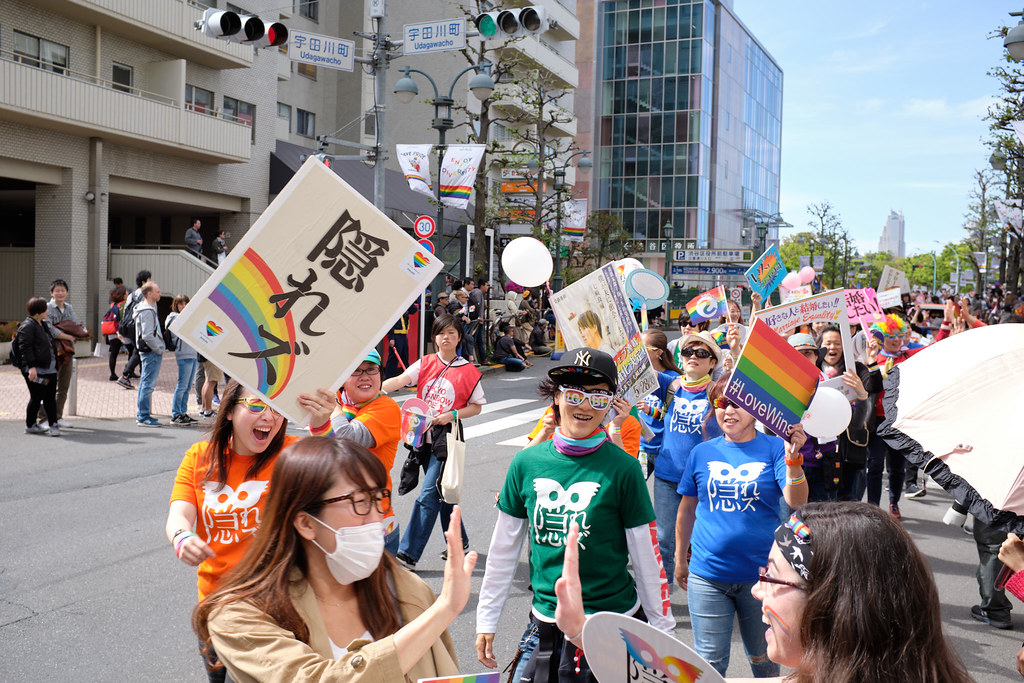As the weather continues to get warmer, and the month of May draws near its end, anticipation for the next month also rises. The thought of June brings many exciting events to mind: graduations, summer break… However, before summer break starts, there is one notable event that must be brought to attention: Tokyo Pride.
Tokyo Pride is celebrating the queer community in Tokyo this year on June 7th and 8th through the Pride Festival, and on the 8th a parade will be held with the slogan of “Same Life, Same Rights.” But what rights is this referring to? Ahead of the event, let’s take a closer look at the challenges LGBTQ+ people face in Japanese society.
Japan does not have any national laws addressing the issue of same-sex marriage, even though in 2024, the Tokyo Supreme Court ruled that not legally recognising same-sex marriage is unconstitutional. Because of this lack of recognition, same-sex couples in Japan face discrimination in various contexts.
According to the book Same-Sex Partner Life Textbook (同性パートナー生活読本) by Shibun Nagayasu, same-sex couples are unable to take out a mortgage together, as their relationship does not designate each other as a legal heir to the property in case one partner dies. Furthermore, the book explains that same-sex couples cannot be eligible for tax breaks on income for having a partner with no income (legally, an income of less than 1.03 million yen), as it is explicitly stated that to be eligible for this tax break, the two must be legally married. These disadvantages apply to same-sex couples as well as heterosexual couples who are not legally married.
LGBTQ+ people also face discrimination in employment. The Nippon Foundation reported that there have been cases where people have had their interviews cut off when they came out, or had their job offers rescinded. Furthermore, there have been cases where a person’s gender or sexual orientation affected their opportunities for getting promotions. While Tokyo’s municipal government, as Human Rights Watch reported, passed an anti-discrimination bill that states “the city government, citizens, and enterprises ‘may not unduly discriminate on the basis of gender identity or sexual orientation,’” Human Rights Watch also noted that the Japanese government has yet to pass national anti-discrimination laws for LGBTQ+ people.
Lastly, people who wish to change their legal gender in Japan face significant challenges as well. As the NHK reported, under Japanese law, a person must undergo surgery to change their genitalia to match the sex they wish to legally declare and lose their reproductive functions to be able to change their legal gender. While the article reports that the Supreme Court ruled that forcing people to lose reproductive functions is unconstitutional, it also reported that “the court did not make a decision on whether it should be required for a person’s genital organs to resemble those of the gender they identify with.” Therefore, people wishing to change their legal gender may still have to undergo surgery.Though some progress has been made, like municipalities increasingly allowing same-sex partnerships (though they do not hold the same legal power as marriage) and the Supreme Court ruling in favour of legal gender change without losing reproductive functions, many issues remain unresolved. Let us bear in mind these challenges as we go into Pride Month and Tokyo Pride, so we can celebrate our progress and face the challenges that still remain.







